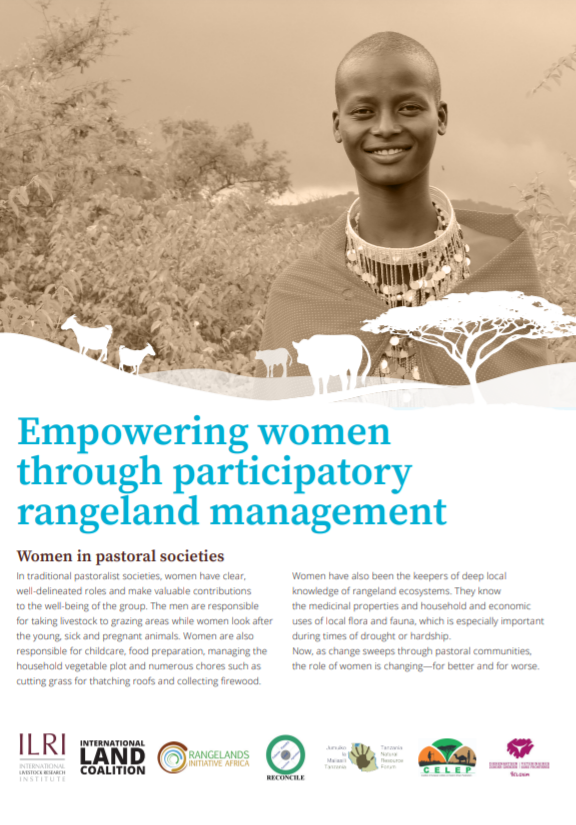In traditional pastoralist societies, women have clear, well‑delineated roles and make valuable contributions to the well-being of the group. The men are responsible for taking livestock to grazing areas while women look after the young, sick and pregnant animals. Women are also responsible for childcare, food preparation, managing the household vegetable plot and numerous chores such as cutting grass for thatching roofs and collecting firewood. Women have also been the keepers of deep local knowledge of rangeland ecosystems. They know the medicinal properties and household and economic uses of local flora and fauna, which is especially important during times of drought or hardship. Now, as change sweeps through pastoral communities, the role of women is changing—for better and for worse.

